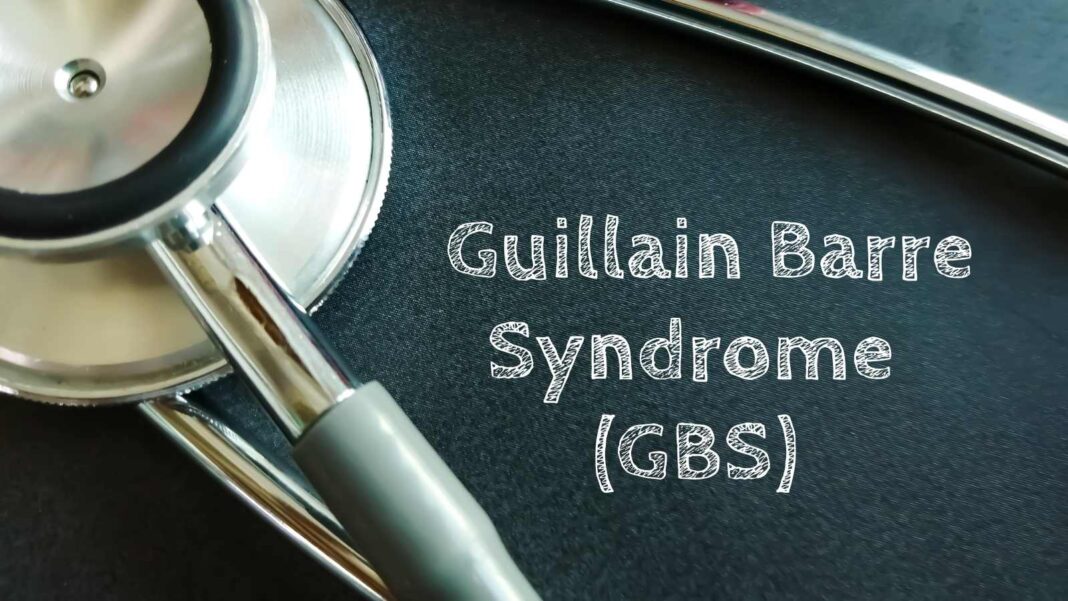An alarming outbreak of Guillain Barre Syndrome (GBS) has been reported in Maharashtra, with 101 people ill and one fatality. Know 10 Guillain-Barre syndrome symptoms to keep yourself safe.
After reports of hMPV or human metapneumovirus affecting people in India, an outbreak of Guillain Barre syndrome or GBS has been reported in India. The fatal disorder has claimed the life of one person in Solapur, Maharashtra so far and 101 cases have been confirmed in Pune. A rare neurological disorder, GBS has created panic among people but the Neurological Society of Pune has urged people not to panic. A seven-member Central team is also expected to help local health authorities to contain the spread of the infection in the city. One of the best ways to safeguard yourself is through awareness and knowing the Guillain Barre syndrome symptoms.
Gullian Barre Syndrome cases in Maharashtra
A total of 101 cases of Guillain Barre syndrome (GBS), a rare neurological disorder, have been reported in Pune on Sunday. One suspected GBS death was also confirmed in Solapur, Maharashtra. The deceased reportedly had symptoms including cold, cough, and breathing difficulties and was initially moved to the ICU before being transferred to a regular room. However, his condition worsened, leading to paralysis in his limbs and difficulty breathing, before eventually passing away, as per the reports. Currently, 16 patients diagnosed with this rare but treatable neurological disorder are on ventilator support.
The first suspected GBS case in Pune was recorded on January 9, and cases have been rising since then. GBS seems to be most common in individuals aged 30 to 50, highlighting the need to know the Guillain Barre syndrome symptoms.
What is Guillain-Barre syndrome?
Guillain-Barré Syndrome (GBS) is a rare neurological disorder where the immune system attacks the peripheral nervous system, which includes nerves outside the brain and spinal cord. This can cause weakness, numbness, and, in severe cases, paralysis. GBS often develops suddenly and requires immediate medical attention. While it is treatable, without prompt care, GBS can be life-threatening.
Guillain Barre syndrome symptoms or GBS symptoms
This is a rare but serious neurological disorder that affects the nervous system. It can cause problems with movement, sensation, breathing, and even the heart. In most cases, Guillain Barre syndrome symptoms first start in the feet and hands before spreading to other parts of the body, causing numbness and tingling sensation. This is followed by muscle weakness and trouble moving your joints. Symptoms generally worsen over the first 2 to 4 weeks. Know 10 common Guillain Barre syndrome symptoms:
1. Tingling or sensation in the feet and hands
One of the first Guillain Barre syndrome symptoms is a tingling sensation or feelings of pins and needles, usually starting in the feet and hands. This feeling may spread to other parts of the body, such as the arms and upper body, as per the Centers for Disease Control and Prevention. It is an early warning sign that your nerves are being affected.

2. Muscle weakness and numbness
Weakness and numbness are common early Guillain Barre syndrome symptoms. People often feel their muscles become weaker, especially in the legs and arms. As the condition progresses, the weakness may get worse, making it hard to move muscles or even perform basic tasks. In severe cases, this weakness can lead to partial or total paralysis, particularly in the limbs, according to Johns Hopkins Medicine.
3. Trouble speaking and swallowing
Another alarming Guillain Barre syndrome symptoms includes difficulty with speaking and swallowing. This condition, known as dysphagia, can cause problems with eating and talking. People with GBS may find it difficult to swallow food or liquids, which can increase the risk of choking (food or liquid entering the lungs).
4. Imbalance and clumsiness
As GBS progresses, people often experience problems with balance and coordination. You may start feeling clumsy or unsteady when walking or have trouble maintaining balance, especially while standing. This happens because the muscles that control movement become weaker. According to Johns Hopkins Medicine, about 3 in 20 people may experience long-term weakness and may need some help to walk.
5. Gastrointestinal issues
In some cases, GBS can affect the digestive system, leading to diarrhoea or other bowel problems. This can cause discomfort and disrupt normal digestion. Not everyone with GBS will experience gastrointestinal symptoms, but some people experience trouble controlling their bladder or bowel movements. This is also one fo the common Guillain Barre syndrome symptoms.
6. Pain in the limbs and spine
Pain is another most common Guillain Barre syndrome symptoms. Many people experience pain in their limbs, especially in the arms and legs, or along the spine. The pain may feel like aching, stabbing, or a deep, constant discomfort. It can worsen as the condition progresses and may interfere with daily activities and sleep.
7. Vision problems
Vision issues can also occur with GBS. Some people experience double vision or difficulty moving their eyes, states the National Health Service. This is because GBS can affect the nerves controlling the muscles around the eyes, leading to problems focusing or coordinating eye movements.
8. Breathing difficulties
Breathing problems are serious Guillain Barre syndrome symptoms and can become life-threatening. In about one-third of people with GBS, the syndrome affects the muscles that control breathing, reveals the World Health Organization. This can make it difficult to take deep breaths or breathe normally, leading to shortness of breath and a feeling of suffocation. If the respiratory muscles become too weak, a ventilator may be needed to help with breathing.

9. Rapid heart rate and blood pressure issues
Apart from breathing issues, GBS can also cause problems with your heart. People with this condition may experience a rapid heart rate (tachycardia), fluctuations in blood pressure levels (either high or low), or abnormal heart rhythms. These changes in the cardiovascular system can make the condition more dangerous and require careful monitoring.
10. Paralysis (in worst cases)
In most severe cases, GBS can lead to paralysis. This usually starts with weakness in the legs and spreads upward, eventually affecting the arms and even the face, notes the World Health Organization. Paralysis can be temporary or permanent, depending on the symptoms of each case. In rare cases, it can lead to total paralysis, which requires intensive medical care, including the use of a ventilator to help with breathing.
These are the most common Guillain Barre syndrome symptoms, but it is important to note that each person may experience slightly different signs. In some cases, the symptoms can become life-threatening but most people recover almost completely with proper care. However, many individuals are left with ongoing fatigue and pain.
Related FAQs
How does GBS spread?
It does not spread from person to person. It is an autoimmune disorder where the body’s immune system mistakenly attacks the nerves. The exact cause is not always clear, but GBS often follows an infection, such as a viral or bacterial illness.
What causes Guillain Barre syndrome?
The exact cause of GBS is not fully understood, but it is believed to be triggered by n infection. Common infections that can lead to GBS include respiratory infections, gastrointestinal infections, and viruses like the flu or Covid-19. In rare cases, vaccinations or surgeries may also trigger the condition.
Is GBS contagious?
No, GBS is not contagious. It cannot be passed from one person to another through physical contact, air, or other means. However, some infections that trigger GBS, such as viruses or bacteria, can be contagious.
Get latest updates on health and wellness along with Health News







